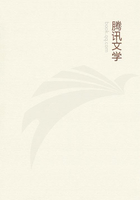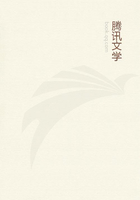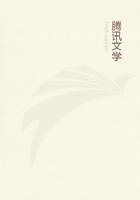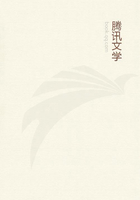But if from the industry of a life wholly dedicated to studious labours, and those natural endowments haply not the worst for two and fifty degrees of northern latitude, so much must be derogated, as to count me not equal to any of those who had this privilege, Iwould obtain to be thought not so inferior, as yourselves are superior to the most of them who received their counsel: and how far you excel them, be assured, Lords and Commons, there can no greater testimony appear, than when your prudent spirit acknowledges and obeys the voice of reason from what quarter soever it be heard speaking; and renders ye as willing to repeal any Act of your own setting forth, as any set forth by your predecessors.
If ye be thus resolved, as it were injury to think ye were not, I know not what should withhold me from presenting ye with a fit instance wherein to show both that love of truth which ye eminently profess, and that uprightness of your judgment which is not wont to be partial to yourselves; by judging over again that Order which ye have ordained to regulate printing:--that no book, pamphlet, or paper shall be henceforth printed, unless the same be first approved and licensed by such, or at least one of such, as shall be thereto appointed. For that part which preserves justly every man's copy to himself, or provides for the poor, I touch not, only wish they be not made pretences to abuse and persecute honest and painful men, who offend not in either of these particulars.
But that other clause of licensing books, which we thought had died with his brother quadragesimal and matrimonial when the prelates expired, I shall now attend with such a homily, as shall lay before ye, first the inventors of it to be those whom ye will be loath to own; next what is to be thought in general of reading, whatever sort the books be; and that this Order avails nothing to the suppressing of scandalous, seditious, and libellous books, which were mainly intended to be suppressed. Last, that it will be primely to the discouragement of all learning, and the stop of truth, not only by disexercising and blunting our abilities in what we know already, but by hindering and cropping the discovery that might be yet further made both in religious and civil wisdom.
I deny not, but that it is of greatest concernment in the Church and Commonwealth, to have a vigilant eye how books demean themselves as well as men; and thereafter to confine, imprison, and do sharpest justice on them as malefactors. For books are not absolutely dead things, but do contain a potency of life in them to be as active as that soul was whose progeny they are; nay, they do preserve as in a vial the purest efficacy and extraction of that living intellect that bred them. I know they are as lively, and as vigorously productive, as those fabulous dragon's teeth; and being sown up and down, may chance to spring up armed men. And yet, on the other hand, unless wariness be used, as good almost kill a man as kill a good book. Who kills a man kills a reasonable creature, God's image; but he who destroys a good book, kills reason itself, kills the image of God, as it were in the eye. Many a man lives a burden to the earth; but a good book is the precious life-blood of a master spirit, embalmed and treasured up on purpose to a life beyond life. 'Tis true, no age can restore a life, whereof perhaps there is no great loss; and revolutions of ages do not oft recover the loss of a rejected truth, for the want of which whole nations fare the worse.
We should be wary therefore what persecution we raise against the living labours of public men, how we spill that seasoned life of man, preserved and stored up in books; since we see a kind of homicide may be thus committed, sometimes a martyrdom, and if it extend to the whole impression, a kind of massacre; whereof the execution ends not in the slaying of an elemental life, but strikes at that ethereal and fifth essence, the breath of reason itself, slays an immortality rather than a life. But lest I should be condemned of introducing license, while I oppose licensing, Irefuse not the pains to be so much historical, as will serve to show what hath been done by ancient and famous commonwealths against this disorder, till the very time that this project of licensing crept out of the Inquisition, was catched up by our prelates, and hath caught some of our presbyters.
In Athens, where books and wits were ever busier than in any other part of Greece, I find but only two sorts of writings which the magistrate cared to take notice of; those either blasphemous and atheistical, or libellous. Thus the books of Protagoras were by the judges of Areopagus commanded to be burnt, and himself banished the territory for a discourse begun with his confessing not to know WHETHER THERE WERE GODS, OR WHETHER NOT. And against defaming, it was decreed that none should be traduced by name, as was the manner of Vetus Comoedia, whereby we may guess how they censured libelling. And this course was quick enough, as Cicero writes, to quell both the desperate wits of other atheists, and the open way of defaming, as the event showed. Of other sects and opinions, though tending to voluptuousness, and the denying of divine Providence, they took no heed.
Therefore we do not read that either Epicurus, or that libertine school of Cyrene, or what the Cynic impudence uttered, was ever questioned by the laws. Neither is it recorded that the writings of those old comedians were suppressed, though the acting of them were forbid; and that Plato commended the reading of Aristophanes, the loosest of them all, to his royal scholar Dionysius, is commonly known, and may be excused, if holy Chrysostom, as is reported, nightly studied so much the same author and had the art to cleanse a scurrilous vehemence into the style of a rousing sermon.

